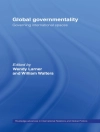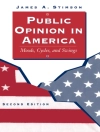Is Japan prepared for an ethnically diverse society? The volume examines the past and future trajectory of Japan’s immigration and integration policies and related institutions, taking a cross-disciplinary approach in social sciences. The authors highlight critical issues and challenges that the nation is facing as a result of the government’s inarticulate migrant-acceptance policy, e.g. in the fields of deportation, refugee policy, multicultural education and disaster protection. How can the situation be improved? The book investigates the changes and initiatives needed to build a resilient policy regime for a liberal, pluralistic, and inclusive Japan.
สารบัญ
Introduction <br /><b>Part I National Immigration Policies </b><br>Chapter 1: Problems from Leviathan’s Cells (Toake Endoh) <br>Chapter 2: Refugee Policy (Ryuji Mukae) <br><br /><br><b>Part II Who Foreign Workers/Residents Are: From Micro-level Perspectives </b><br>Chapter 3: Forty-Five Years of Multiculturalism in Japan: A Personal Narrative (J. F. Morris) <br>Chapter 4: Socially Different: Diversity of Vietnamese Residents in Japan (Setsuko Shibuya) <br>Chapter 5: The Unexplored Potential of Foreign Workers in Japan’s Travel and Tourism Industries (Hidekazu Iwamoto) <br><br /><br><b>Part III Issues of Migrant Integration on the Subnational Level </b><br>Chapter 6: Japan’s Immigration Policy and Japanese Language Requirements (Uichi Kamiyoshi) <br>Chapter 7: The Significance of Multicultural Coexistence in Post-Pandemic Japan (Akiyoshi Kikuchi) <br><br /><br>ACKNOWLEDGMENTS <br>Contributors <br>Index
<br><br>
เกี่ยวกับผู้แต่ง
Toake Endoh, Ph.D., is professor of political science at Josai International University, Japan.












